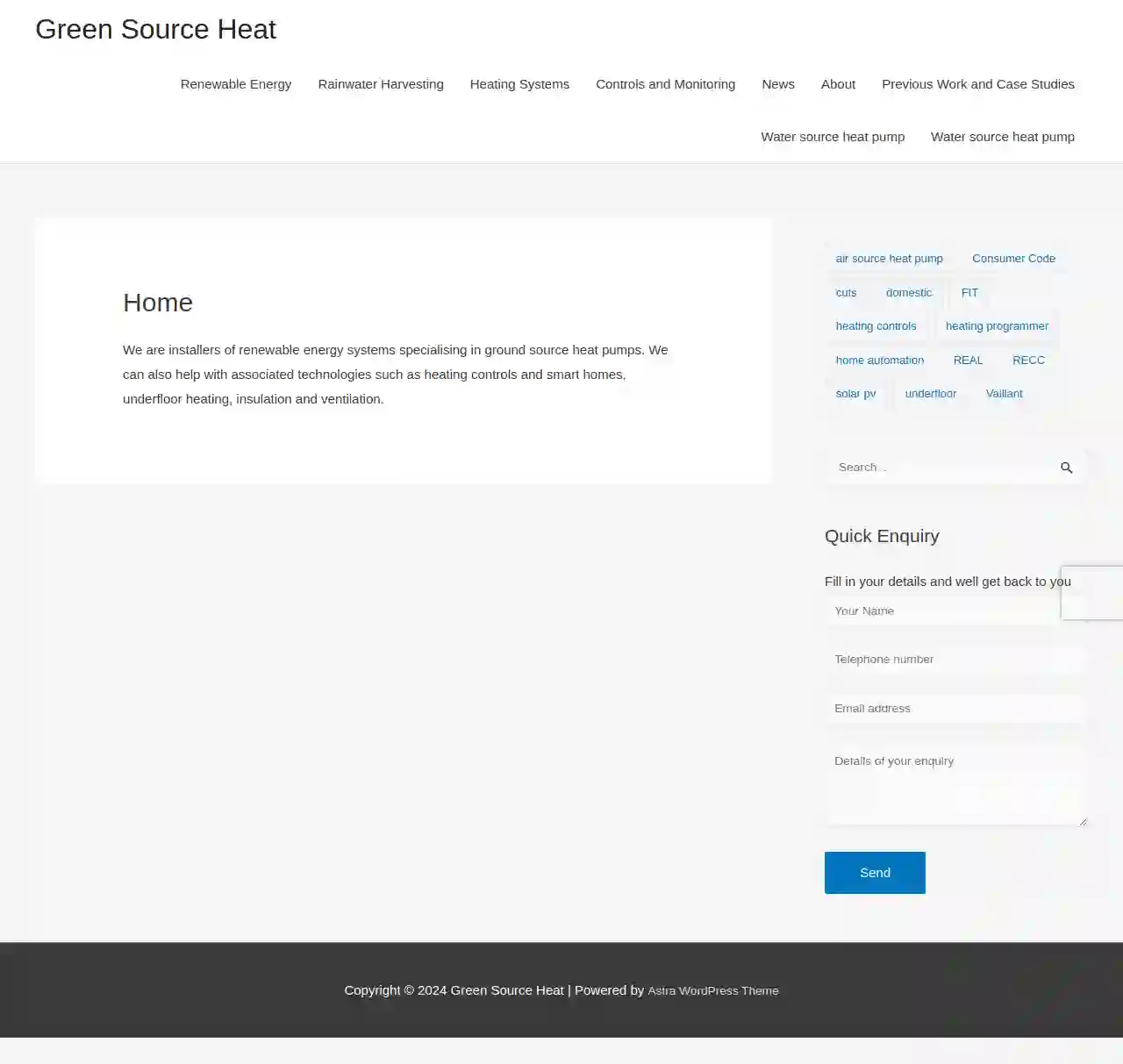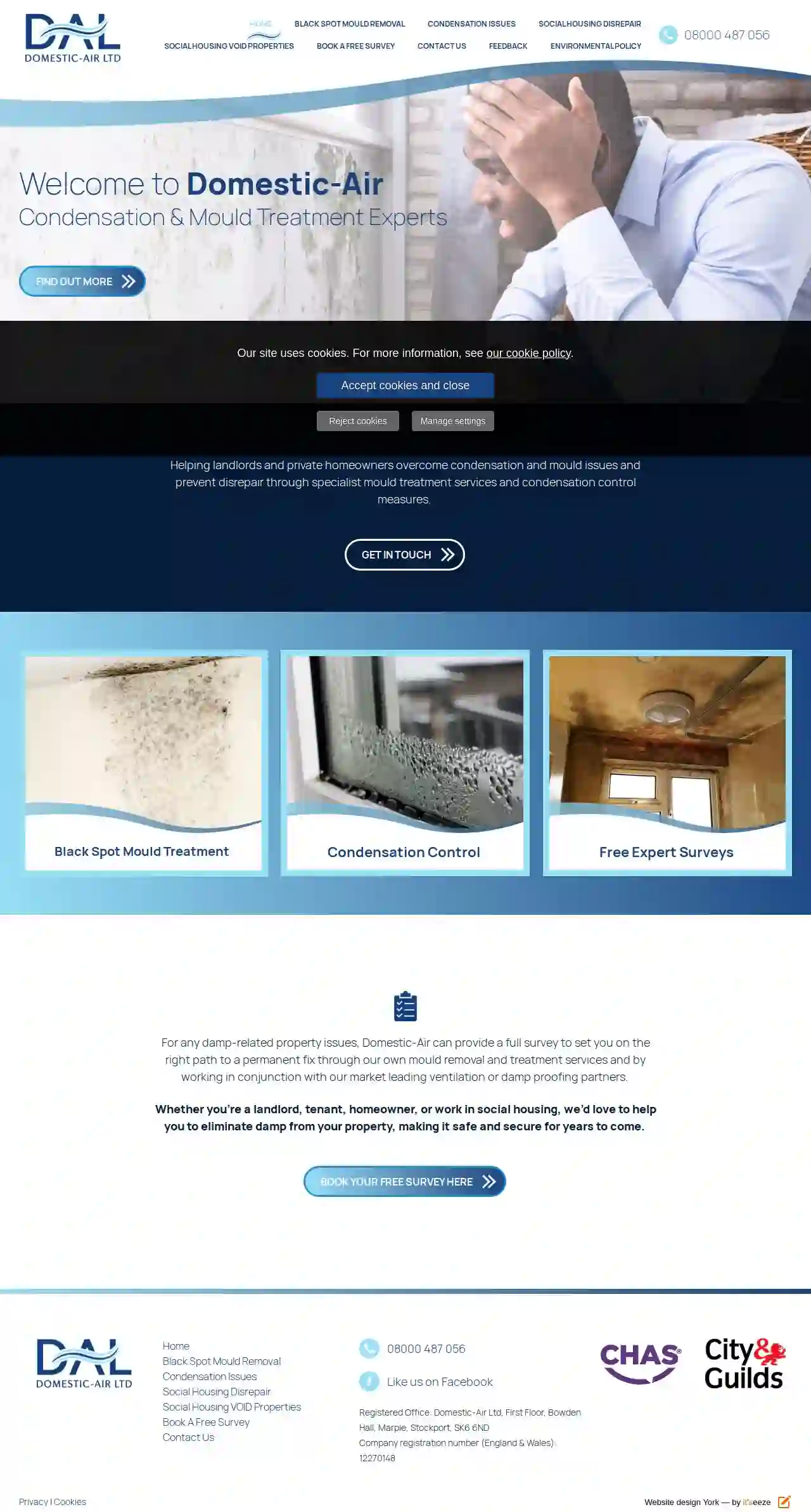Furnace Repair Glossop
Find top Furnace Repair in Glossop
Receive up to 3 Furnace Service quotes for your project today! Compare profiles, reviews, accreditations, portfolio, etc... and choose the best deal.

Green Source Heat
1Glossop, GBGreen Source Heat are installers of renewable energy systems specialising in ground source heat pumps. We can also help with associated technologies such as heating controls and smart homes, underfloor heating, insulation and ventilation.
- Services
- Why Us?
Get Quote
Glossop Aggregates And Fuel Supplies
4.546 reviewsGlossop, GBWelcome to Website of Glossop Coal and Log Supplies Thank you for taking the time to take a look at the website of Glossop Coal and Log Supplies No1. Supplier of coal and logs in Glossop and surrounding areas In this website you will be able to read about the coal and log products and services provided, as well as see the latest prices AND contact Gaz and his team with your order enquiry No.1 Suppliers of Coal and Logs in Glossop. Having been established since 2013 – Glossop Coal and Log Supplies have grown from a single stall on Glossop Market, to supplying hundreds of tonnes of coal and logs in Glossop and the surrounding area. With a winning combination of quality products, unbeatable prices and excellent customer service – you needn’t look anywhere else for all your coal and log needs.
- Services
- Why Us?
- Our Team
- Gallery
Get Quote
Domestic-Air Ltd
55 reviewsFirst Floor, Bowden Hall, Marple, SK6 6ND, GBWelcome to Domestic-Air, Condensation & Mould Treatment Experts Helping landlords and private homeowners overcome condensation and mould issues and prevent disrepair through specialist mould treatment services and condensation control measures. For any damp-related property issues, Domestic-Air can provide a full survey to set you on the right path to a permanent fix through our own mould removal and treatment services and by working in conjunction with our market leading ventilation or damp proofing partners. Whether you’re a landlord, tenant, homeowner, or work in social housing, we’d love to help you to eliminate damp from your property, making it safe and secure for years to come.
- Services
- Why Us?
- Gallery
Get Quote
Over 1,991+ HVAC Businesses on our directory
Our HVAC companies operate in Glossop & surroundings!
HVACCompaniesHub has curated and vetted the Best HVAC Businesses in Glossop. Find a reliable business today.
Frequently Asked Questions about Furnace Repair
- Licensed and Insured: Ensure the company has proper credentials to operate in your area.
- Experienced: Choose a business with certified technicians. Consider technicians who specialize in your system's make and model.
- Reputable: Check online reviews and ratings to gauge the company's reputation and customer satisfaction. Referrals from friends, family, or neighbors can be valuable.
- Transparent Pricing: Choose a company that offers clear, upfront pricing and provides written estimates.
- Available 24/7 (for emergencies): If you experience a furnace breakdown outside of regular business hours, make sure the company offers 24/7 emergency repair service.
- High Energy Bills: An oversized furnace can cause increased energy consumption.
- Inconsistent Temperatures: Noticeable temperature fluctuations throughout your home.
- Short Cycling: If your furnace turns on and off frequently, it may not be heating your space efficiently and wasting energy.
- Poor Air Quality: If the airflow from the vents seems weak or there are areas with inconsistent temperatures, the unit may be the wrong size.
- Excessive Noise: Oversized furnaces may produce more noise than normal.
- Change Air Filters Regularly: A clean air filter improves airflow, allowing your furnace to work more efficiently. How often you need to change your filters depends on factors like pets, smoking, and air quality.
- Schedule Annual Maintenance: An annual tune-up by an HVAC technician includes inspection, cleaning, and adjustments An annual checkup can extend the lifespan of your furnace.
- Seal Air Leaks: Prevent drafts from making your furnace work harder. This will prevent heated air from escaping and cold air from entering, reducing the workload on your furnace.
- Upgrade Insulation: Make sure your home has adequate insulation in attics, walls, and floors to reduce heat loss.
- Use a Programmable Thermostat: Optimize temperature settings and automate them.
- Consider Zoning: Zoning divides your home into separate zones, each with individual temperature control, allowing for custom climate regulation.
- No Heat or Reduced Heat Output: This can be caused by a faulty thermostat, a clogged air filter, or a malfunctioning igniter.
- Strange Noises: Unusual sounds like banging, squealing, or rumbling can indicate problems with the blower motor, igniter, or other components.
- Short Cycling: This is when the furnace turns on and off too frequently, which can be caused by a faulty thermostat, an overheating furnace, or a clogged air filter.
- Pilot Light/Ignition Problems: In older furnaces, a faulty pilot light can prevent the furnace from igniting. In newer furnaces, issues with the electronic ignition system can cause similar problems.
- Blower Motor Issues: If the blower motor isn't functioning, your furnace may not distribute heat properly. A malfunctioning blower motor can cause reduced airflow, uneven temperatures, and loud noises. should be addressed by a technician.
- Dirty Air Filter: A clogged air filter restricts air circulation. It can also cause overheating and damage..
- Cracked Heat Exchanger: This is a serious safety hazard, as it can lead to dangerous gasses entering your home. A cracked heat exchanger needs to be repaired or replaced immediately.
How do I find a good furnace repair company?
How can I tell if my furnace is the correct size for my home?
How can I improve the efficiency of my furnace?
What are the most common furnace problems?
How do I find a good furnace repair company?
- Licensed and Insured: Ensure the company has the necessary licenses and insurance to operate in your area.
- Experienced: Look for a company with a proven track record in furnace repair. Ask how long they've been in business and if they specialize in your furnace type..
- Reputable: Check online reviews and ratings to gauge the company's reputation and customer satisfaction. Look for companies with positive reviews from previous clients.
- Transparent Pricing: Choose a company that offers clear, upfront pricing and provides written estimates.
- Available 24/7 (for emergencies): If you experience a furnace breakdown outside of regular business hours, make sure the company offers 24/7 emergency repair service.
How can I tell if my furnace is the correct size for my home?
- High Energy Bills: An incorrectly sized furnace can cause increased energy consumption.
- Inconsistent Temperatures: Noticeable temperature fluctuations between rooms.
- Short Cycling: If your furnace cycles frequently, it may not be heating your space efficiently and wasting energy.
- Poor Air Quality: If the airflow from the vents seems weak or there are areas with inconsistent temperatures, the unit may be the wrong size.
- Excessive Noise: Oversized furnaces can make loud or unusual sounds
How can I improve the efficiency of my furnace?
- Change Air Filters Regularly: A clean air filter improves airflow, allowing your furnace to work more efficiently. How often you need to change your filters depends on factors like pets, smoking, and air quality.
- Schedule Annual Maintenance: An annual tune-up by an HVAC technician can optimize performance An annual checkup can extend the lifespan of your furnace.
- Seal Air Leaks: Prevent drafts from making your furnace work harder. Proper sealing increases energy efficiency and makes your home more comfortable overall.
- Upgrade Insulation: Good insulation is essential for retaining heat and lowering energy bills. It's a good idea to check insulation levels periodically.
- Use a Programmable Thermostat: Lower the thermostat setting at night or when you're away to save energy..
- Consider Zoning: If you have rooms that are rarely used or have inconsistent temperatures, consider installing a zoning system. divides your home into separate zones, each with its own thermostat, allowing you to heat or cool only the occupied areas, saving energy and improving comfort..
What are the most common furnace problems?
- No Heat or Reduced Heat Output: This can be caused by a variety of issues.
- Strange Noises: Unusual sounds like banging, squealing, or rumbling can indicate problems with the blower motor, igniter, or other components.
- Short Cycling: This is when the furnace turns on and off rapidly, which can be caused by a faulty thermostat, an overheating furnace, or a clogged air filter.
- Pilot Light/Ignition Problems: In older furnaces, a faulty pilot light can prevent the furnace from igniting. In newer furnaces, issues with the electronic ignition system can cause similar problems.
- Blower Motor Issues: The blower motor circulates air through the furnace and ductwork. A malfunctioning blower motor can cause reduced airflow, uneven temperatures, and loud noises. requires attention.
- Dirty Air Filter: A clogged air filter restricts air circulation. It can also cause overheating and damage..
- Cracked Heat Exchanger: This is a serious safety hazard, as it can lead to dangerous gasses entering your home. This is considered an emergency.